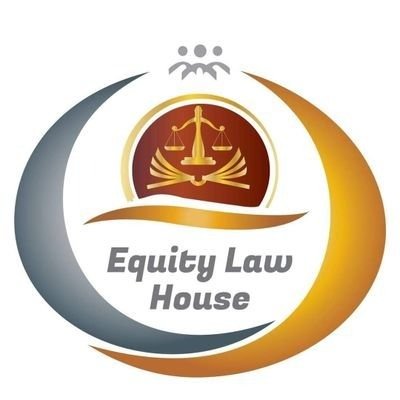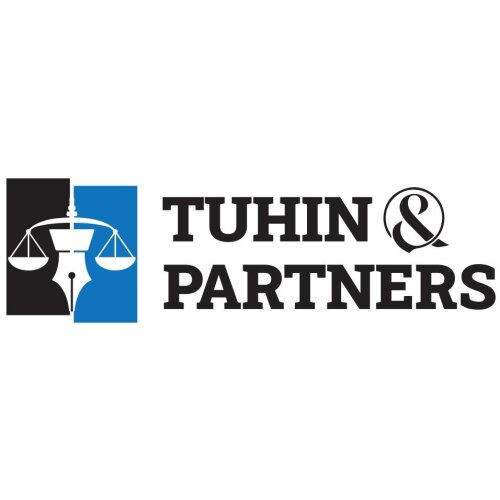Best Private Client Lawyers in Dhaka
Share your needs with us, get contacted by law firms.
Free. Takes 2 min.
List of the best lawyers in Dhaka, Bangladesh
About Private Client Law in Dhaka, Bangladesh
Private Client law in Dhaka, Bangladesh, relates to the legal needs of individuals and families regarding their personal assets, property, succession planning, trusts, wills, tax planning, and family arrangements. This area of law ensures the protection, management, and orderly transfer of wealth from one generation to another, while balancing compliance with local regulations. Private client legal services in Dhaka commonly address matters of inheritance, gift transfers, real estate, guardianship, and dispute resolution within families, helping clients achieve their long-term personal and financial goals through tailored legal solutions.
Why You May Need a Lawyer
A lawyer specializing in private client matters can be crucial in a variety of situations. Some common scenarios include:
- Drafting or updating a will to ensure your assets are distributed according to your wishes.
- Managing inheritance or succession issues, including disputes among heirs or beneficiaries.
- Establishing trusts for asset protection or for the benefit of dependent family members.
- Planning for tax-efficient asset transfers during your lifetime or after death.
- Managing property ownership issues, especially with joint family properties or ancestral assets.
- Navigating the guardianship or custody process for minor children or dependents.
- Dealing with high-value estates, complex or international assets, and cross-border family relationships.
- Legal compliance in gifting assets, both movable and immovable, to family or others.
- Preparation of power of attorney, living wills, or advanced directives.
Meeting with a qualified lawyer ensures your interests are legally protected and all documents are compliant with Bangladeshi law.
Local Laws Overview
Bangladesh’s legal framework for private client matters is shaped by a mix of statutory law and personal laws based on religion. Some key aspects relevant to private client law in Dhaka include:
- Succession Law: The inheritance and succession of assets in Bangladesh are governed by the Succession Act, 1925, along with personal laws such as Muslim, Hindu, and Christian personal laws.
- Wills: Both Muslims and non-Muslims may draft wills, but there are restrictions; for example, under Muslim law, only up to one-third of an estate may be bequeathed to non-heirs without heirs' consent.
- Trusts: The Trusts Act, 1882, governs the creation, administration, and duties relating to trusts, which can be used for asset management, succession, and protection purposes.
- Gifts (Hiba/Donations): The Transfer of Property Act and personal laws lay out how movable and immovable property can be gifted, with requirements on acceptance and delivery, especially in Muslim law (Hiba).
- Taxation: Asset transfers, gifts, and inheritance can trigger taxes or duties. Bangladesh does not have inheritance tax per se, but stamp duties and taxes may apply on property or asset transfers.
- Guardianship: The Guardians and Wards Act, 1890, dictates the process for appointing guardians for minors or people with disability.
- Family Arrangements: Deeds of family arrangements can be used to resolve disputes and re-allocate assets, provided they are voluntary and fair to all parties.
Frequently Asked Questions
What is a will, and who can make one in Bangladesh?
A will is a legal document detailing a person's wishes regarding the distribution of their property after death. Anyone over the age of 18 and of sound mind can make a will in Bangladesh. Non-Muslims are subject to the Succession Act, while Muslims have their own personal law considerations.
Is registration of a will mandatory in Dhaka?
Registration of a will is not mandatory in Bangladesh, but it is strongly recommended. Registration provides legal proof of the will's validity and helps prevent disputes.
How are assets distributed if someone dies intestate (without a will)?
Assets are distributed according to the relevant succession laws. For Muslims, this follows the principles of Sharia. For Hindus and Christians, the personal law and the Succession Act, 1925, apply.
Can I exclude my legal heirs from my will?
Under Muslim law, there are limits to excluding legal heirs. Only up to one-third of the estate may be bequeathed outside legal heirs without their consent. For non-Muslims, testators have greater freedom, but certain close relatives may still have claims.
What is the process of gifting property in Bangladesh?
For immovable property, a registered deed of gift is executed and possession is handed over. For Muslims, the concept is known as Hiba and follows a less formal procedure but mandates acceptance and transfer of possession.
How do I create a trust in Bangladesh?
A trust is created under the Trusts Act, 1882, by executing a trust deed specifying the trustee, beneficiaries, and purpose of the trust. The deed may be registered if it involves immovable property.
Do foreign nationals have the right to inherit property in Bangladesh?
In general, inheritance laws apply based on nationality and religion. Foreign nationals can inherit property, but there may be restrictions on transferring or owning certain types of assets under local law and government policy.
What taxes or fees apply to inheritance and gifts?
While Bangladesh does not levy inheritance tax, there may be stamp duties, registration fees, and income tax on property transfers or gifts. Consulting a lawyer or tax advisor for specific obligations is recommended.
How are family property disputes resolved?
Disputes are generally settled through negotiation and voluntary family arrangements. If these fail, parties may approach local courts for adjudication under civil law.
Can a power of attorney be used for managing assets in Bangladesh?
Yes, a power of attorney can be granted for managing or transferring property and assets. It must be specific, clearly worded, and usually registered with the appropriate authorities to be enforceable.
Additional Resources
If you need further guidance on private client matters in Dhaka, these resources may be useful:
- Ministry of Law, Justice and Parliamentary Affairs: Responsible for enacting and overseeing succession, trust, and property laws.
- Bangladesh Bar Council: For finding qualified legal practitioners specializing in private client law.
- Registrar of Joint Stock Companies and Firms (RJSC): Handles registration of trusts and companies.
- Sub-Registrar’s Offices: Authority for registration of property, wills, and deeds of gift.
- National Board of Revenue (NBR): Information regarding applicable taxes on property transfers and gifts.
- Legal Aid Committees and NGOs: Some provide free or low-cost advice for individuals on succession or family disputes.
Next Steps
If you require legal assistance in private client matters in Dhaka, consider the following steps:
- Identify your specific legal concern, such as drafting a will, managing inheritance, or establishing a trust.
- Gather copies of all relevant documents, such as title deeds, family certificates, previous wills, or agreements.
- Seek recommendations or consult the Bangladesh Bar Council to find a qualified lawyer with experience in private client matters.
- Arrange a meeting to discuss your needs, and ask about the fees and process before proceeding.
- Follow your lawyer’s guidance to ensure all documents are legally compliant and properly registered to avoid future disputes.
- Keep copies of all executed legal documents in a safe place and inform a trusted individual of their location.
A private client lawyer can provide you with peace of mind and clear direction at every stage, helping you protect your interests and those of your loved ones in Dhaka, Bangladesh.
Lawzana helps you find the best lawyers and law firms in Dhaka through a curated and pre-screened list of qualified legal professionals. Our platform offers rankings and detailed profiles of attorneys and law firms, allowing you to compare based on practice areas, including Private Client, experience, and client feedback.
Each profile includes a description of the firm's areas of practice, client reviews, team members and partners, year of establishment, spoken languages, office locations, contact information, social media presence, and any published articles or resources. Most firms on our platform speak English and are experienced in both local and international legal matters.
Get a quote from top-rated law firms in Dhaka, Bangladesh — quickly, securely, and without unnecessary hassle.
Disclaimer:
The information provided on this page is for general informational purposes only and does not constitute legal advice. While we strive to ensure the accuracy and relevance of the content, legal information may change over time, and interpretations of the law can vary. You should always consult with a qualified legal professional for advice specific to your situation.
We disclaim all liability for actions taken or not taken based on the content of this page. If you believe any information is incorrect or outdated, please contact us, and we will review and update it where appropriate.
Browse private client law firms by service in Dhaka, Bangladesh
Dhaka, Bangladesh Attorneys in related practice areas.










